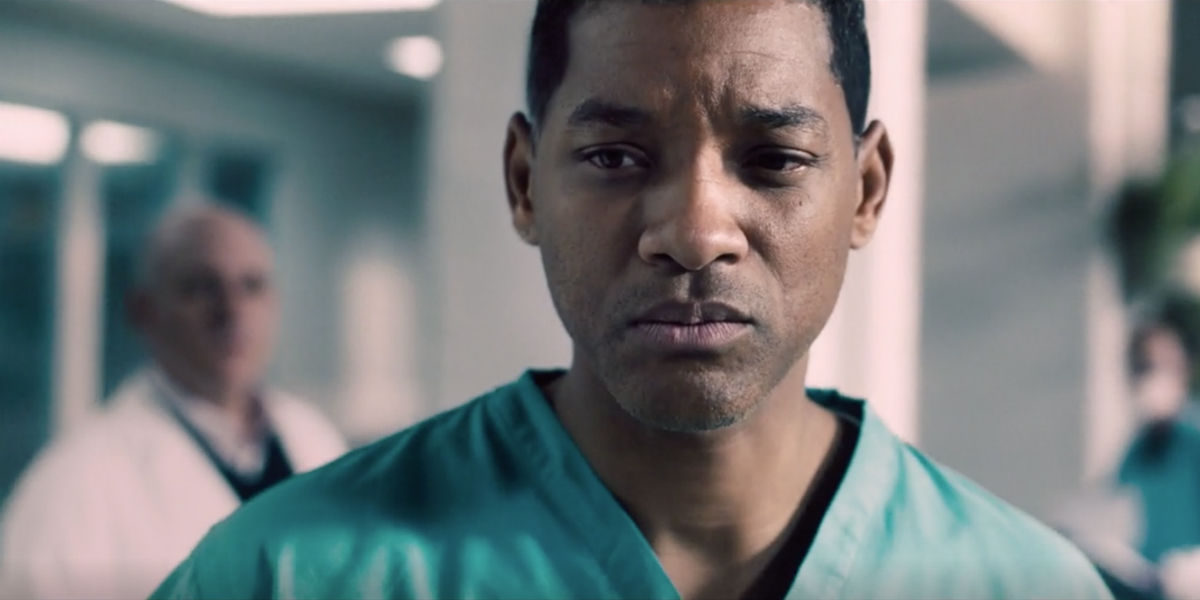Head injuries wreak havoc in the lives of many professional football players. According to Boston University research, 87 out of 91 U.S players who suffered head injuries in matches tested positive for CTE (Chronic Traumatic Encephalopathy), a progressive, degenerative disease causing dementia and impairment of brain function.
In the latest Hollywood blockbuster ‘Concussion’, which makes its way to the big screen this Christmas, actor Will Smith plays Dr. Bennet Omalu, the medic who first raised the alarm about this issue, establishing a link between football and CTE.
Will Smith is himself a devoted football fan, and his son Trey has been a high-school football star. Smith says he was in two minds about accepting the role, as it might create some negative feelings about the sport, but a meeting with Dr. Omalu changed his mind. It made him realize that the issue was a serious one that needed to be publicized.
Despite initial fears that the film might upset NFL and big stakeholders, so far the reaction has been quite positive. The NFL says it has introduced no less than 40 new regulations in the past decade to protect the health and safety of players. It’s also funding research and development to design innovative protective gear for those who play the sport.
The debate on the issue of head injuries is not confined to the U.S alone. In the 2014 World Cup Final, Germany’s Christoph Kramer lost consciousness after a head-on collision with an Argentinian player. England’s Premier League now has a rule that any player who suffers a head injury cannot go back to the field till a team of doctors examines him and gives the green signal.
In bringing CTE into the limelight, Concussion and Will Smith may be doing a huge favour to the game of football.


